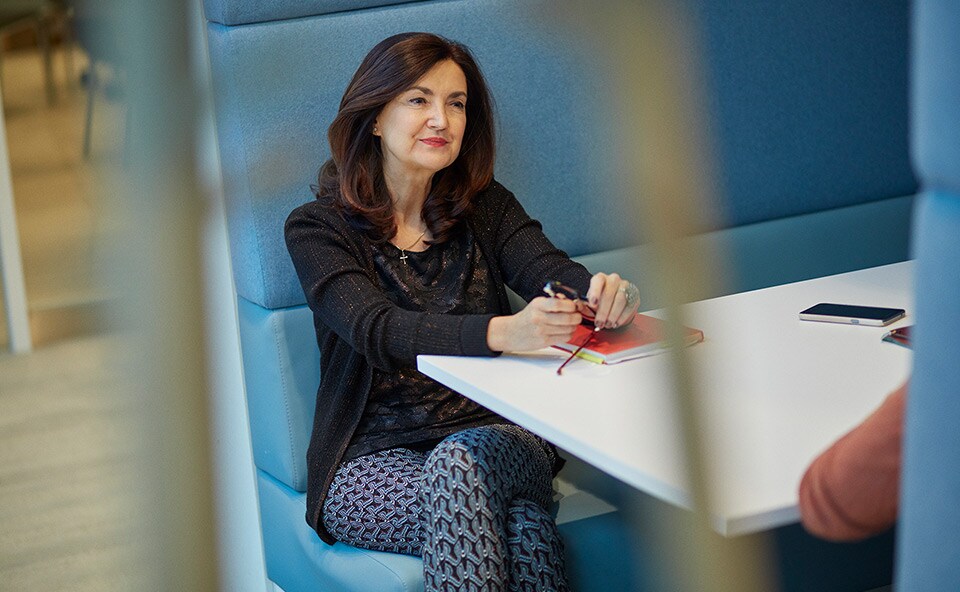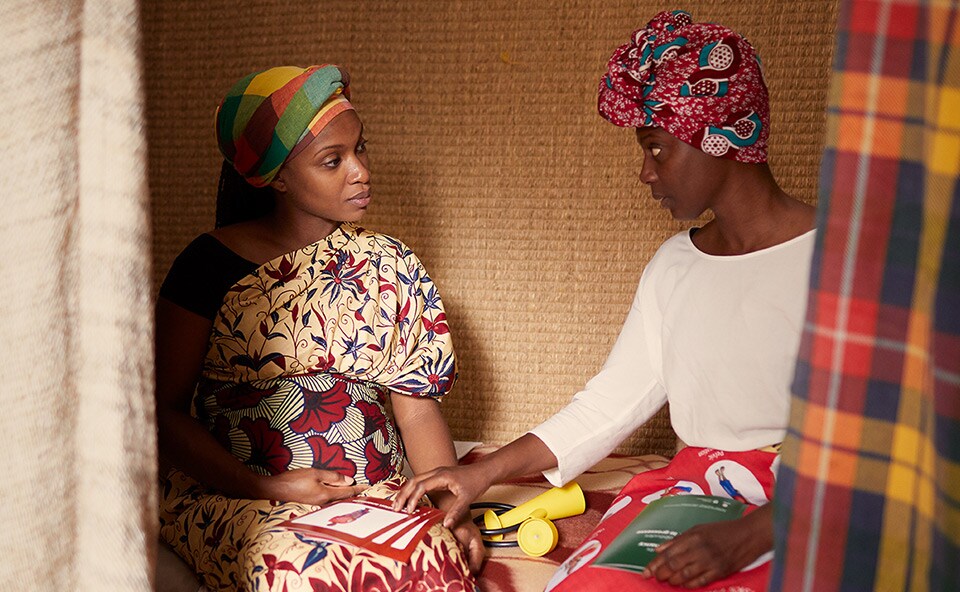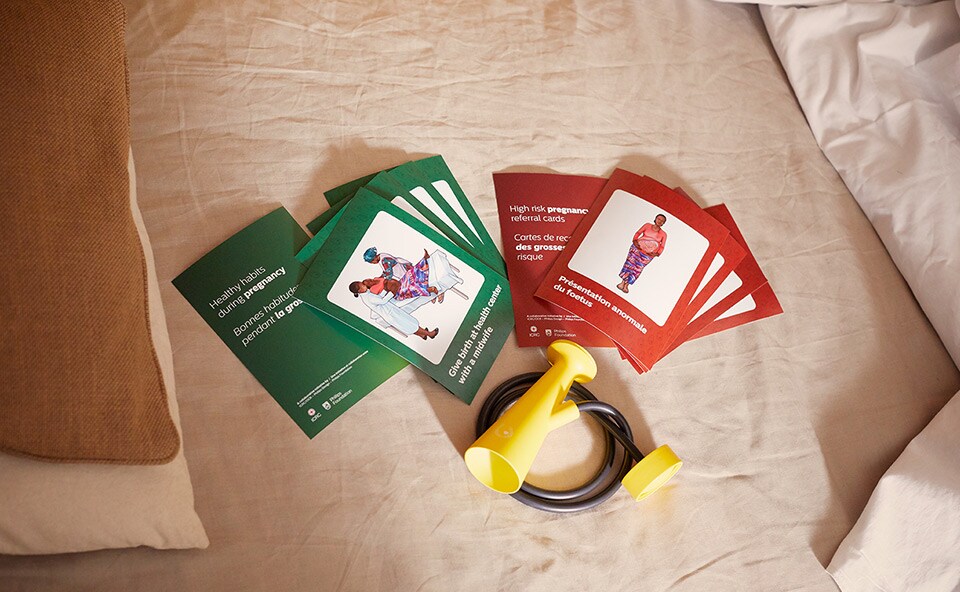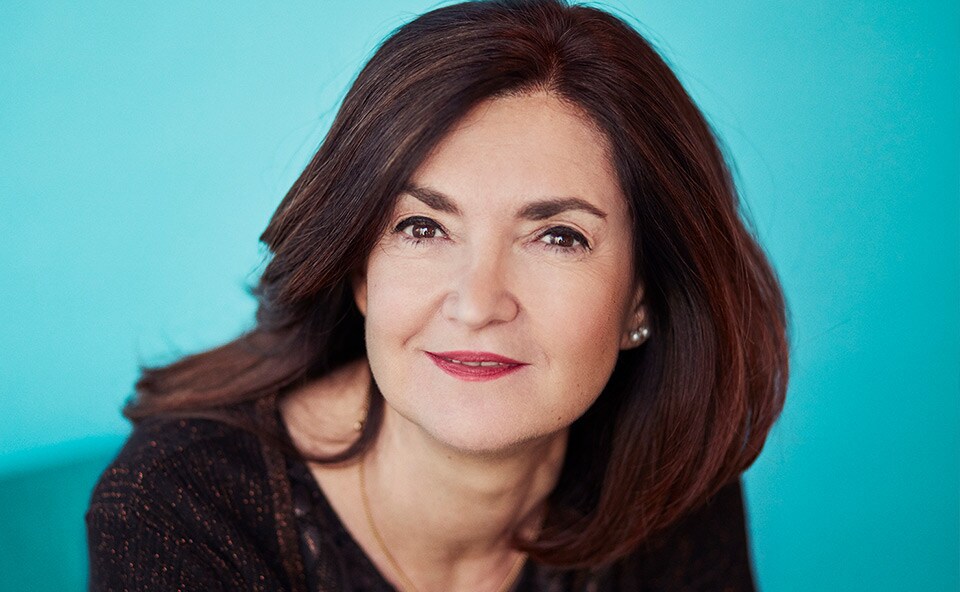The
Spark
Episode 10 - 3 May 2018
Work hard, play cards
Simona Rocchi is the 'work hard, play hard' force behind design, sustainability and innovation at Philips. A published author, design awards winner, and traveling lecturer, she's both inventive and knowledgeable in the solutions she brings to matters both global and personal. With Simona’s sweeping range of interests, it seems that her love of life is one of the reasons she works so diligently to preserve it.
“My job is to gain insight into environmental and social challenges, and understand how we can contribute, as a company, to address these challenges by designing context-specific solutions,” explains Simona, who brings to her career, and Philips, a sense of scope. Travelling and working in far flung continents like Africa, it’s where Simona tackles some of the bigger challenges facing our civilization – particularly when it comes to health. And more specifically, the health of pregnant women. To support the detection of pregnancies at risk and educate women on healthier pregnancy journeys, one of Simona’s recent projects was coordinating of the design and development of a set of cards, in cooperation with the Philips Foundation and the International Committee of the Red Cross (ICRC). Not a traditional deck of cards, suited by swords and clubs. Instead, Simona’s cards are suited to the needs of pregnant women in various African countries, to their health concerns, and to the specifics of their cultures. The cards “are used by midwives of the ICRC to train healthcare workers that reach pregnant women in in fragile settings with no - or very limited - access to connectivity and electricity,” says Simona.
Not a traditional deck of cards: Simona’s cards help pregnant women in Africa, bridging their health concerns, and the specifics of their cultures.
Each card does what cards always have done; provide a space for communication and interaction beyond the restrictions of verbal and even written language. Simona’s cards are being put to work to support saving the lives of mothers and their babies in low resource communities. “It’s a very powerful tool to help healthcare workers ‘speak’ with pregnant women and to make them aware of risky conditions that might be fatal,” Simona explains. “In certain cultures, in certain settings, you have to be more sensitive to locally appropriate ways of communication to be more effective.”
Exposure to global challenges Simona, her design team, and a number of cross-sector partners are raising the bar on what’s possible in these settings where mother and child mortality is a high priority topic. The project, which transcends language and can be adapted to cultures around the world, is an innovation we can easily trace to Simona’s exploratory and venturous nature. She doesn’t see herself bound by her own culture or Italian origins. She’s certainly informed by her heritage, but she’s also informed by other cultures which she interacts with on a daily basis. “I left my [home]town to study in Milan, to be more exposed to global challenges,” she says. Specifically, Simona was interested in “how design could contribute to the resolution of environmental or social challenges.” Philips is also about the intersections of cultures. And for innovation to take place, learning and sharing are key. In this sort of exchange, you get back what you put in, and Simona is all in. “I think it’s very naive to think that, alone, you can change the world. Alone it’s very difficult,” she muses. “But if you can contribute, together with other global and local players who are very active and knowledgeable, and you combine efforts, you can save lives.”
“You can save the life of not just one woman, but millions of women.”
If the reports came in saying a million women benefited from Simona's work, we’re guessing she'd be quite pleased but not entirely satisfied. She’s driven to do as much good as she can – and share. And she’s in exactly the right place to do it.
How does Simona tackle great global challenges by design while staying sane? Here are her 5 tips for career success:







